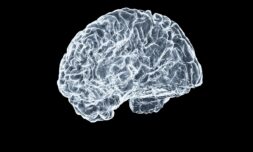Though it’s long been assumed that bacteria can’t survive in the human brain, neuroscientists have recently been surprised to discover that it may harbour all sorts of micro-organisms.
In recent years, gut health has been all the rage.
This is because our understanding of the function and importance of the microbiome that lives in our intestines has improved, particularly in relation to maintaining the immune system.
A microbiome is a community of microorganisms, such as bacteria, fungi, and viruses, that live on or inside a particular environment. Others have been discovered too, in the lungs, nasal cavity, skin, and even scalp.
What’s long been dismissed, however, is the possibility of one able to survive in the human brain.
This is due to the widespread belief that it’s a sterile organ, shielded – by the powerful blood-brain barrier – from the rest of the body and from harmful ‘agents’ that are circulating in our blood.
It’s also due to the difficulty of obtaining healthy, uncontaminated human brain tissue that could be analysed in order to confirm the presence of microbes.
Research during the last decade has sought to untangle this web, with a study published in Science Advances providing the strongest evidence yet that this is something to look into.
As it uncovered, the brain microbiome can and does exist in healthy vertebrates – specifically, fish.
🧬Feeding the Gut to Fuel the Brain 🧠 An in-depth review in @NatMetabolism uncovers how the diet-microbiota-gut-brain axis influences brain health, linking dietary habits with cognitive and emotional well-being through gut-brain communication. 🌱
📖 Highlights
• Poor diets may… pic.twitter.com/TlESY8oXRn— Leigh A. Frame 🍎🥕🍋🥦🍇 (@PhD_Leigh) November 18, 2024
And not only do these communities of bacteria have special adaptations that allow them to survive in brain tissue, but techniques that help them cross the protective threshold.
‘This is concrete evidence that brain microbiomes do exist in vertebrates,’ says physiologist, Matthew Olm. ‘And so the idea that humans have a brain microbiome is not outlandish.’




















